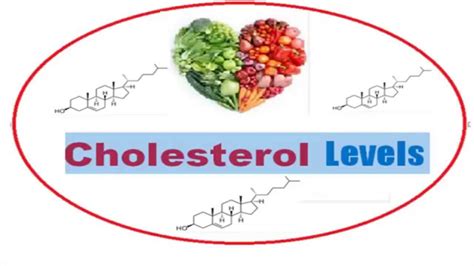

Cholesterol
Published Date: 6/17/2023 6:04:46 AM
- Cholesterol is a waxy, fat-like substance that's found in all the cells in your body. Your body needs some cholesterol to make hormones, vitamin D, and substances that help you digest foods. Your body makes all the cholesterol it needs.
- Cholesterol is an organic molecule. It is a sterol, a type of lipid. Cholesterol is biosynthesized by all animal cells and is an essential structural component of animal cell membranes.
Causes:
- Cholesterol is carried through your blood, attached to proteins. This combination of proteins and cholesterol is called a lipoprotein. There are different types of cholesterol, based on what the lipoprotein carries. They are:
- Low-density lipoprotein (LDL). LDL, or "bad" cholesterol, transports cholesterol particles throughout your body. LDL cholesterol builds up in the walls of your arteries, making them hard and narrow.
- High-density lipoprotein (HDL). HDL, or "good" cholesterol, picks up excess cholesterol and takes it back to your liver.
- A lipid profile also typically measures triglycerides, a type of fat in the blood. Having a high triglyceride level can also increase your risk of heart disease.
- With high cholesterol, you can develop fatty deposits in your blood vessels. Eventually, these deposits grow, making it difficult for enough blood to flow through your arteries. Sometimes, those deposits can break suddenly and form a clot that causes a heart attack or stroke.
- High cholesterol can be inherited, but it's often the result of unhealthy lifestyle choices, which make it preventable and treatable. A healthy diet, regular exercise, and sometimes medication can help reduce high cholesterol.
High cholesterol symptoms:
- A person with high cholesterol levels often has no signs or symptoms, but routine screening and regular blood tests can help detect high levels.
- A person who does not undergo testing may have a heart attack without warning because they did not know that they had high cholesterol levels. Regular tests can help to reduce this risk.
Levels and ranges:
In adults, total cholesterol levels less than 200 milligrams per deciliter (mg/dL) are considered healthy.
- A reading between 200 and 239 mg/dL is borderline high.
- A reading of 240 mg/dL and above is considered high.
- LDL cholesterol levels should be less than 100 mg/dL.
- 100–129 mg/dL is acceptable for people with no health problems but maybe a concern for anyone with heart disease or heart disease risk factors.
- 130—159 mg/dL is borderline high.
- 160–189 mg/dL is high.
- 190 mg/dL or higher is considered very high.
- HDL levels should be kept higher. The optimal reading for HDL levels is 60 mg/dL or higher.
- A reading of less than 40 mg/dL can be a major risk factor for heart disease.
- A reading from 41 mg/dL to 59 mg/dL is borderline low.
Lowering cholesterol through diet:
- To help you achieve and maintain healthy cholesterol levels, your doctor may recommend changes to your diet.
For example, they may advise you to:
- Limit your intake of foods that are high in cholesterol, saturated fats, and trans fats.
- Choose lean sources of protein, such as chicken, fish, and legumes.
- Eat a wide variety of high-fiber foods, such as fruits, vegetables, and whole grains.
- Opt for baked, broiled, steamed, grilled, and roasted foods instead of fried foods.
- Avoid fast food and junk food.
Foods that are high in cholesterol, saturated fats, or trans fats include:
- Red meat, organ meats, egg yolks, and high-fat dairy products.
- Processed foods made with cocoa butter, palm oil, or coconut oil.
- Deep-fried foods, such as potato chips, onion rings, and fried chicken.
- Certain baked goods, such as some cookies and muffins.
- Eating fish and other foods that contain omega-3 fatty acids may also help lower your LDL levels. For example, salmon, mackerel, and herring are rich sources of omega-3s. Walnuts, almonds, ground flax seeds, and avocados also contain omega-3s.
Home Remedy:
- Garlic 2 pieces with Honey in the evening (1 teaspoon)
Triphala Powder + Honey (At morning with empty stomach)
How to lower cholesterol naturally:
- In some cases, you may be able to lower your cholesterol levels without taking medications. For example, it may be enough to eat a nutritious diet, exercise regularly, and avoid smoking tobacco products.
- Some people also claim that certain herbal and nutritional supplements may help lower cholesterol levels. For instance, such claims have been made about:
- garlic
- hawthorn
- astragalus
- red yeast rice
- plant sterol and stanol supplements
- oat
- psyllium, found in psyllium seed husk
- ground flax seed
However, the level of evidence supporting these claims varies. Also, the U.S. Food and Drug Administration (FDA) hasn’t approved any of these products for treating high cholesterol. More research is needed to learn if they can help treat this condition.
Mudra Therapy for Cholesterol: